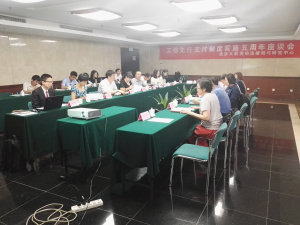
¡¶Social Insurance Law¡·No. 41 is about advance payment by work-related injury and illness fund to workers with work-related injuries or illnesses, it’s been five years since it was initially in force. Even though this regulation has covered most of provinces across the country, it still faces various problems, such as low pass rate of application, heavy load of evidence proof and litigation, and lack of valid regulations at the local level. This has strongly affected the process of enforcement and laborers’ legal rights, which requires academia and other sectors’ further research and discussion for solutions. Under this circumstance, Yilian had done a two-month investigation regarding how well this regulation had been implemented. Based upon this research, Yilian wrote a report:¡¶advance payment by work-related injuries or illnessfund to workers: 5-year implementation¡·,and expected to collect comments and suggestions from various sectors through this conference. Moreover, Yilian will send empirical cases and local departments’ relevant practical experiences to the legislature.
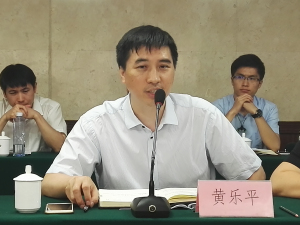
Shuchi Zhang, researcher from Yilian, started his presentation with a general introduction. This report is based on interviews in one city located inShandong province, one city located in Shanxi province, and one district in Beijing area, 117 web search results of judicial precedent from the China Judgments Online, local government information disclosure upon Yilian’s requests to top 20 cities(employment number), and cases that Yilian’s lawyers had been involved, and it thoroughly explains relevant experiences and difficulties during implementation of this regulation from various perspectives includinglaborers, social security departments and legal professionals.
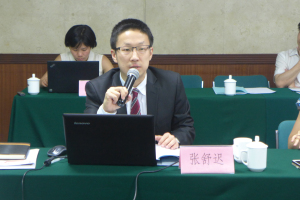
The report has indicated, there are five general difficulties: 1) application rejection rate is relatively high at certain social security departments; 2) administration litigation is basically a pre-step, which directly increases applicants’workload; 3)it is extremely hard to prove that employers have not paid for the work injury insurance, and this regulation is lack of detailed rules, which is used by employers as an excuse to refuse to pay; 4)the applicability of this regulation for employees who are already over retirement age; 5)social security departments had encountered difficulties when they ask for recovery from the employers.
The result of this report is based upon Yilian’s forth investigation regarding this topic. Compare to the first three reports, most of the difficulties mentioned above have existed for a long time, and these problems havesevere effects on protection of laborer’s rights. Besides these, the initial goal and purpose of this regulation has not reached yet.
In terms of these difficulties, this report analyzes obstacles from three aspects: rulemaking, administrative implementation, and underlying factors. According to the report, advanced payment is lack of doable and supplementary rules. Meanwhile, it is lack of support from other departments besides social security department, court, bank, industry and commerce administration departments, and public security. While from a perspective of social security department’s dynamics and rulemaking process, people’s perception and awareness is not widespread yet, and administrative set-up is far beyond optimization,including auditing,approval procedure, responsibility distribution, so on and so forth. These have brought multi-layer problems to social security departments, which has led to further issues during the enforcement of the regulation. From a more macro level, laborers are at a very vulnerable position, and they are neither able to play a role of supervision, nor to provide feedback to decision makers, which has caused itslack of motivation for implementation.
According to the analysis, this report has brought up a few suggestions, including optimization of rulemaking, establishment of partnership across departments, increase work injury insurance participation and recovery capacity, lower risk of fund operation, level up management unit of work injury insurance, balance variation between areas in terms of resources and rules at the macro level (e.g., funding). The report also suggests,policy makers need to puzzle out the main issues, and use those rules at a higher legal hierarchy to regulate those issues, in order to make sure advanced payment for work-related injury and illness can be connected with the Tort Liability Law,toredistribute the onus of proof and clear the retroactive range, require local departments to formulate corresponding rules.
At the end of this report, researchers have pointed out, empowering the laborers is the most effective way to move forward. Meanwhile, theyhave advocated each sectors from the public to get involved to help laborers to get empowered,and give them continuous attention and support,for a better application, implementation and optimization of this regulation.
Based upon Yilian’s report, attended experts gave their comments and led a discussion regarding how to optimize this regulation and other applicable approaches besides those already included in the report to reach the goal.
Regarding how to make sure such cases are processed promptly, several professionals suggested, commercial insurance can be a reference, let social security department do on-site investigations, and open “fast-pass” for pre-pay through work-related injury insurance fund in medical system, through which avoids delayed payment due to employer’s or related department’s procrastination, or lengthy process of judicial practice.

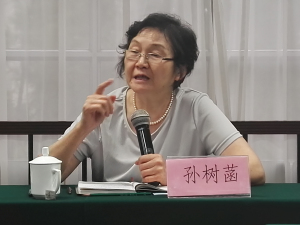
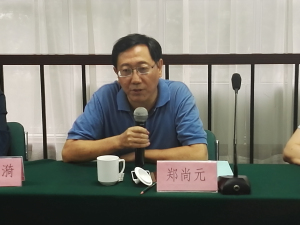
To let social security department take more initiative, attendees from practical sectors have explained the difficulties the social security department have faced, based on their experiences in a practical setting, and also have talked about their staff’s plight and concerns. Followed by a discussion that has addressed several parts: how to solve these existing problems, how to change social security department’s perception£¬further effectively take the responsibility and push the whole process move forward.
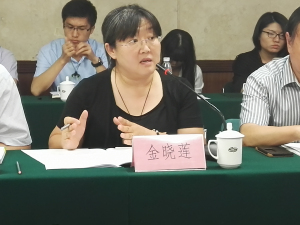
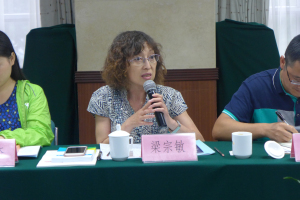
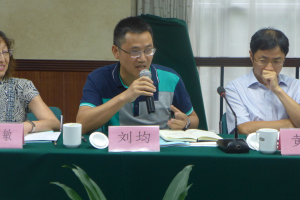
It is usually hard for social security department to get refund from the employers. A few lawyers have proposed, those employers who refuse to pay back should face penalty. For those who still refuse to act upon court decision, in case of serious offense, relevant rules from Criminal Laware supposed to be able to apply.Meanwhile, to avoid common issues, such as registration cancellation on purpose, property transfer,claim there is no property available, it is necessary to make it possible to get recovery from legal representatives’, stockholders’ and other management personnel’s personal property. Moreover, those who are qualified will be put on a list of deadbeatthat the Supreme People’s Court had initiated, and also will be imposed restrictions on a series of behaviors, such as travel, departure, property disposition, and loan application.
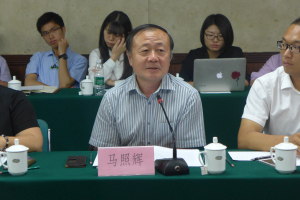
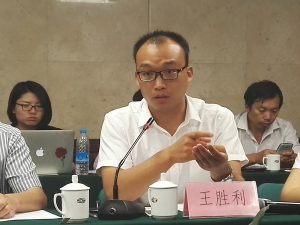
In addition, experts have addressed a few other issues in the discussion, for instance,1) the role of union in the process of application; 2) coverage of occupational disease under this regulation; 3) successfulexperiences of local departments; 4) financial support for the work injury insurance fund. Most of the attendees have agreed,further partnership and more collaboration between social security departments and other relevant departments, and government’s awareness of their responsibility, are the key issuesto reach the goal. Furthermore, various corresponding regulation and rules need to be further optimized, such as expand coverage of work injury insurance, increase penalties regarding employers’nonparticipation in social insurance system, improve resources allocated to related departments’ (e.g., human resource), and avoid interference due to protection of local benefit and privilege.
Through this half-day conference, participants said that they had learned a lot, and would keep an eye on the implementation of this regulation. Staff from Yilian also pointed out, they would take experts’ comments and suggestions into consideration and integrate those information with their report, and then release it to the public with expectation of more feedback. With all efforts, Yilian is going to push forward the implementation of advance payment by work-related injury and illness fund to workers with work-related injuries or illnesses through their action.
